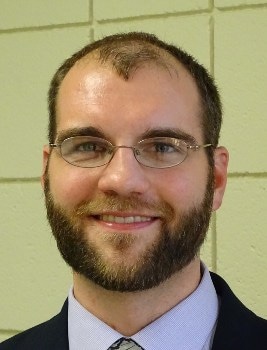Mar 12 2018
“A new frontier in single-molecule detection: polypeptides in nanopore sensors", a lecture by David P. Hoogerheide of the National Institute of Standards and Technology was a part of a Physics Colloquium organized by the Department of Physics in the J. William Fulbright College of Arts and Sciences. It was held on March 9 2018, between 4 and 5 PM in PHYS 133.
 David P. Hoogerheide (Image credit: University of Arkansas)
David P. Hoogerheide (Image credit: University of Arkansas)
The discussion pointed out the motion of charged biomolecules across membranes and its potential impacts on technology, biology, medicine as well as on the biophysics and physical chemistry of biomolecule/membrane association. In technology, the DNA motion through nanopores is a vital mechanism for nanopore-based sequencing technologies.
In the medical field, movement of native proteins across membranes is extremely important for normal cellular operations, while therapeutic peptides can be engineered to identify and penetrate diseased cells. In a more basic view, a thin pore is the easiest way to confine a single polymer. The next phase in nanopore-based detection is the investigation of heterogeneously charged molecules such as block copolymers or polypeptides.
In his lecture, David P. Hoogerheide illustrated the advantages of a heterogeneously charged polypeptide and how it can be used to experimentally view translocation success at the single-molecule level. The experimental results are to be matched with simple stochastic dynamical models. This will lead to exploring new approaches for studying polypeptides with nanopores, discovering new tools for predictive modeling of experimental observations, and finding a new assay to examine the binding of polypeptides to lipid membranes on the single-molecule level.